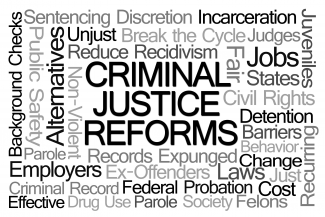Substance Use and the Criminal Justice System Reading List

Research indicates that rates of substance use issues among people who come into contact with the criminal justice system are far greater compared to the general population.
When considering substance use in this context, it is important to examine the way we are framing the issue as there is growing evidence that questions the effectiveness of the deterrence model. Instead, there needs to be a focus on the way we can introduce measures that promote rehabilitation along the continuum from arrest to release, which can help to break cycles and reduce the cost that is associated when someone comes into contact with the justice system. We need to integrate and promote a public health approach to addiction. Not only is it important to understand and monitor the patterns of drug use among people who use substances and who are in contact with the criminal justice system, but there needs to be an acknowledgement of the complex difficulties that this population often face.
Here you can find a range of resources that discuss ways to support people with substance use issues who are in contact with the justice system.
- Here, you can view recordings of part one and part two of the plenary session entitled The Key to Addressing Substance Use Disorders for People in Contact with the Criminal Justice System is Cooperation. These plenary sessions were held during the 2019 International Conference on Drug Prevention, Treatment and Care.
- EMCDDA have drawn together a collection of policy and practice briefings related to Prisons and the Criminal Justice System. The website includes an overview of the key issues, with a particular focus on the situation in Europe, a summary of the available evidence of different interventions offers in prisons and the criminal justice system, and the implications for policy and practice.
- In 2019, the United Nations Office on Drugs and Crime (UNODC) and the World Health Organization (WHO) jointly published the publication Treatment and care for people with drug use disorders in contact with the criminal justice system. The document is designed to enhance knowledge and understanding of alternative options to conviction or punishment.
- The World Health Organisation has published a document that examines Alcohol Problems in the Criminal Justice System. The publication proposes a range of initiatives that prison authorities can take to focus more closely on prisoners with alcohol related problems.
- This webinar, which was delivered by ISSUP Argentina, presented the development of therapeutic justice strategies in the criminal field and generate the exchange of practical experiences of addressing substance use in the enclosing contexts. You can view the webinar recording here.
- This webinar, delivered by ISSUP India in April 2021, explored alternatives to imprisonment for drug users and opportunities for intervention and treatment at different points of the justice system. Watch the recording here.
- In this paper, that was published in the Journal of Addictive Behaviours, researchers from the United States discuss the criminal justice continuum of care for opioid users at risk of overdose, which highlights the instances where screening and assessment, treatment and/or diversion, and overdose prevention should be carried out.
- Drug and Alcohol Findings have provided a critical examination of alcohol treatment in the criminal justice system as a way to reduce reoffending. The highlight, which is drawn from the Effectiveness Bank Alcohol Treatment Matrix, is examines why the record to date is so poor. It includes data from prison studies and discusses in detail the key issues.
- Here, you can explore WHO data on the voluntary treatment for people with drug use disorders in the criminal justice system around the world.